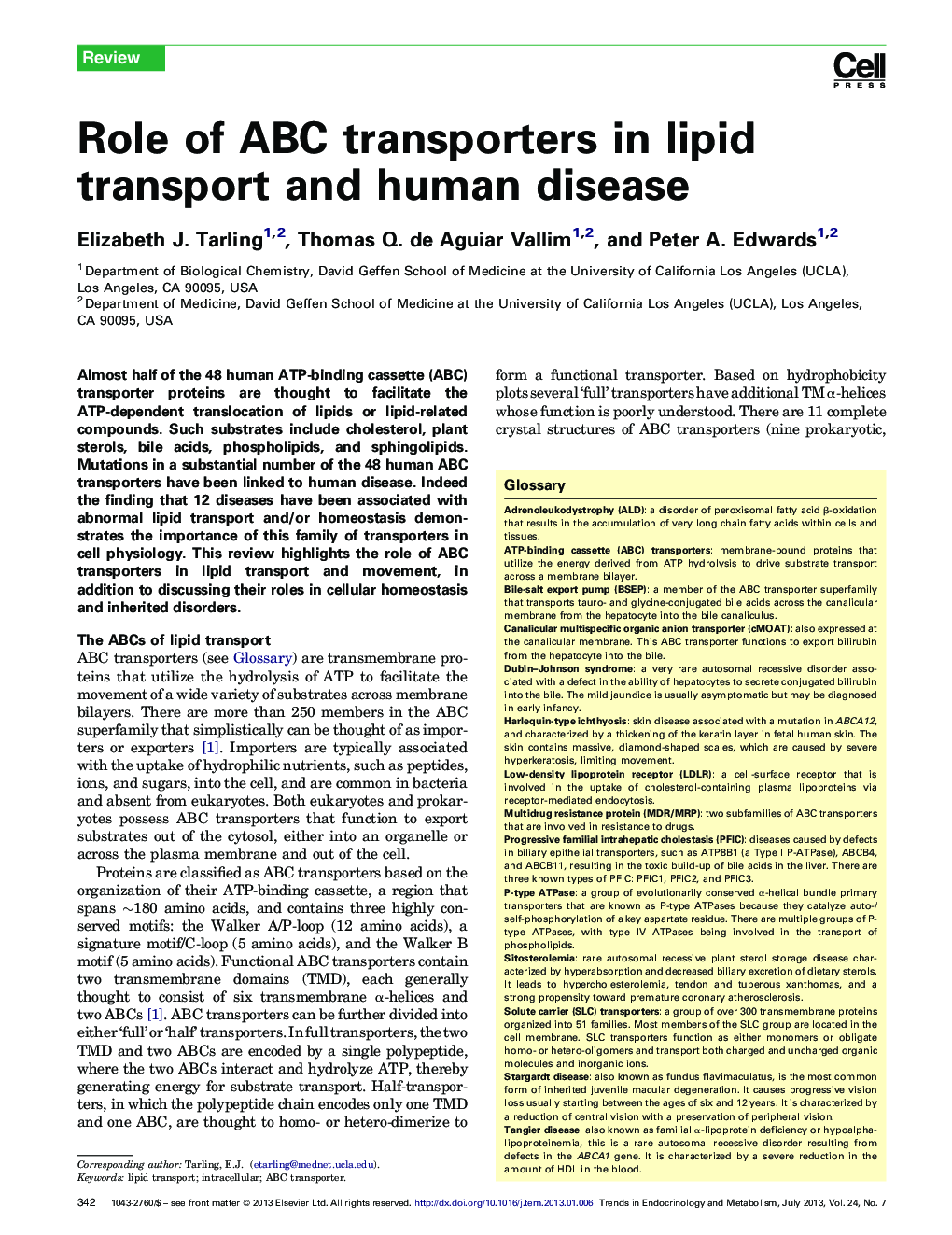| Article ID | Journal | Published Year | Pages | File Type |
|---|---|---|---|---|
| 2810437 | Trends in Endocrinology & Metabolism | 2013 | 9 Pages |
Almost half of the 48 human ATP-binding cassette (ABC) transporter proteins are thought to facilitate the ATP-dependent translocation of lipids or lipid-related compounds. Such substrates include cholesterol, plant sterols, bile acids, phospholipids, and sphingolipids. Mutations in a substantial number of the 48 human ABC transporters have been linked to human disease. Indeed the finding that 12 diseases have been associated with abnormal lipid transport and/or homeostasis demonstrates the importance of this family of transporters in cell physiology. This review highlights the role of ABC transporters in lipid transport and movement, in addition to discussing their roles in cellular homeostasis and inherited disorders.
► ATP binding cassette (ABC) transporters utilize the energy derived from ATP hydrolysis to transport substrates across membrane bilayers. ► There are 48 human ABC transporters and approximately half are thought to be involved in the transport of lipids and lipid-related compounds. ► ABC transporters are found in almost every type of intracellular organelle, and individual transporters have multiple functions depending on their cellular context.
